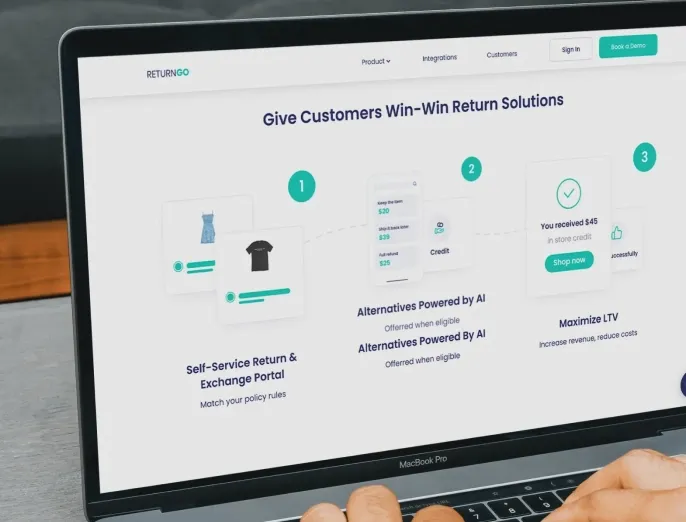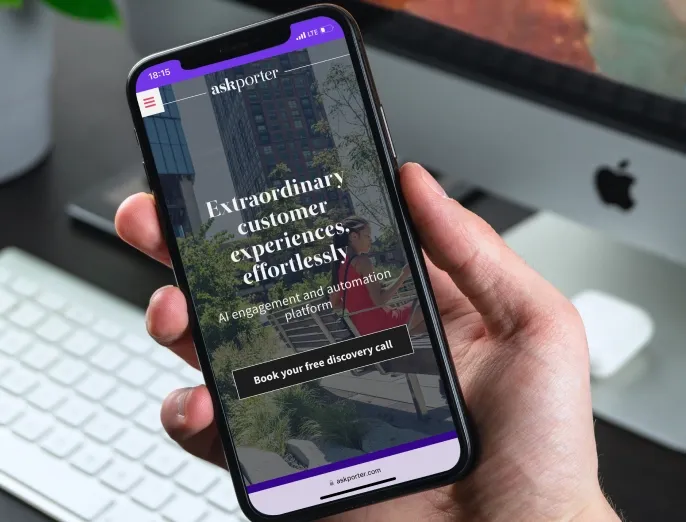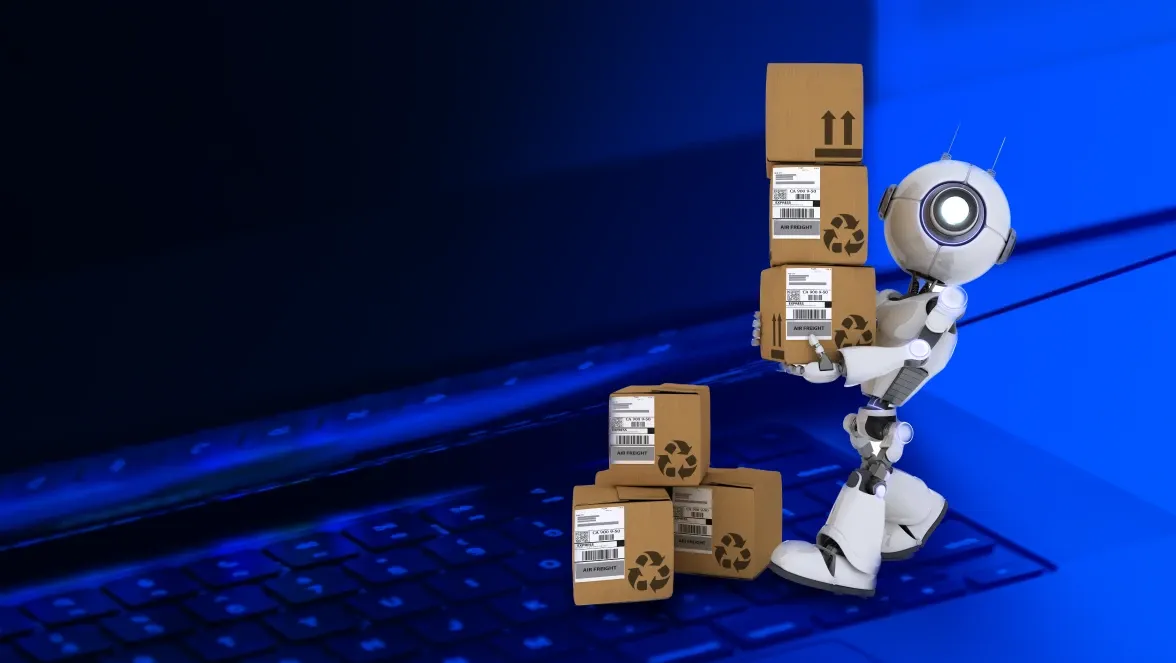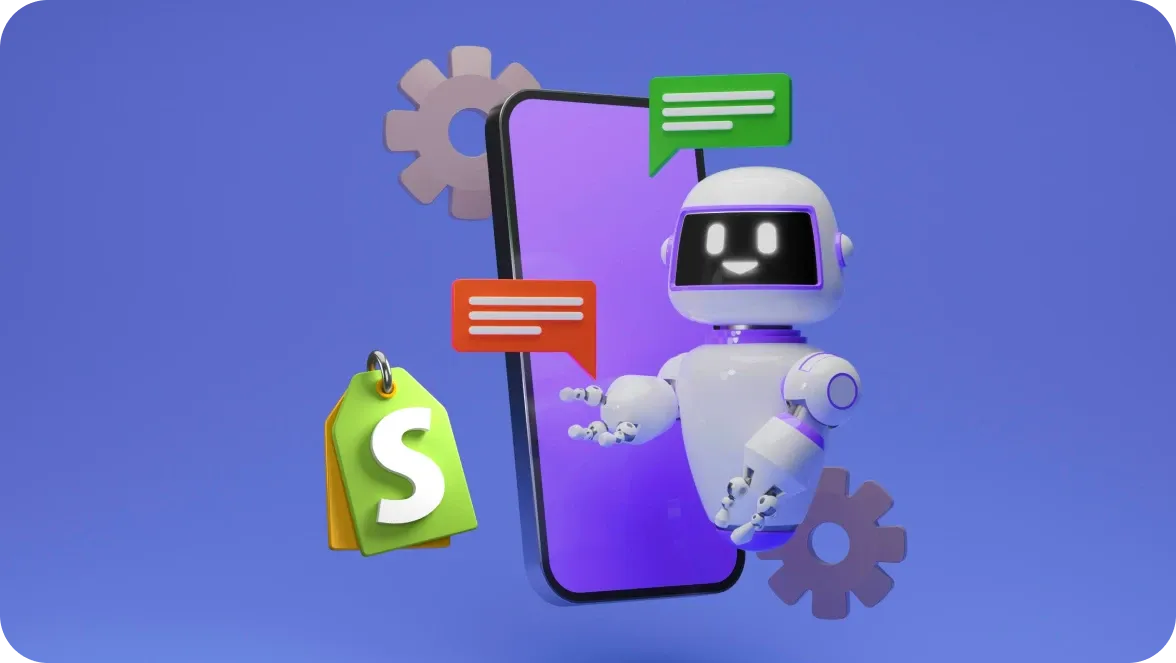
An important step forward in AI development was made on January 23 when OpenAI unveiled a research preview of Operator. This new AI term represents the next-generation AI agent that goes beyond generating text and images – it can perform tasks online without human intervention, making the automation of tasks more intuitive and accessible.
Today, we’ll explore:
What the OpenAI Operator and Computer-Using Agent (CUA) are
The capabilities of the OpenAI Operator agent
Who can benefit from using the OpenAI Operator
Practical use cases and limitations of the OpenAI Operator
Most importantly, you will discover how integrating this technology into your business can enhance efficiency while reducing time and driving better results for your company.
TL;DR: Operator enhances efficiency by handling web tasks on its own
An AI agent independently performs online tasks such as filling out forms, purchasing tickets, completing grocery orders, and more.
Powered by the CUA model, Operator interacts with web interfaces using screenshots and mimics mouse and keyboard actions to “see” and “engage” with a browser.
OpenAI AI agent Operator can be used in many areas, including healthcare, nonprofits, citizen services, and appointment scheduling.
Operator has limitations, including complex interfaces, password fields, calendar management, and passing CAPTCHA tests.
What is OpenAI Operator?
Operator is OpenAI’s first AI agent, created to go to the web and perform tasks autonomously. Functioning as a system, the AI agent understands the instructions, analyzes them, and executes the actions independently without human intervention.
You’ll be amazed at how seamlessly Operator performs these tasks, almost like a real person behind the screen. It can interpret webpage layouts, click buttons, type information, navigate sites, and scroll through content. OpenAI Operator engages directly with websites, automating such tasks as filling out forms, booking appointments and flights, ordering products, flagging important messages, and much more.
What is a Computer-Using Agent (CUA)?
OpenAI’s Operator is driven by the Computer-Using Agent (CUA) model. CUA is an AI system that interacts with computer applications via graphical interfaces. It performs human-like actions, processing pixel data from screenshots to understand the screen's content. This innovative technology combines GPT-4o’s vision capabilities with enhanced reasoning through reinforcement learning.
Who can use OpenAI Operator?
To access Operator, head over to the https://operator.chatgpt.com. This is currently available for ChatGPT Pro users in the United States who are at least 18 years old and have an active Pro subscription. Although Operator is currently limited, it will soon be available to other paid users as it integrates directly into ChatGPT.
How OpenAI operator works

Once the user describes the task, Operator executes the necessary steps. The brain, eyes, and hands functions of Operator relies on CUA. Through screenshots and actions, a mouse and keyboard allow Operator to “see” and “interact” with a browser. This lets it perform the necessary actions without needing custom API integrations. In the same way as humans do, CUA interacts with graphical user interfaces, including such elements as buttons, menus, and fields, which enables it to perform digital tasks without using OS-specific (like Windows or macOS) or web-specific APIs.
The CUA model operates through an iterative perception, reasoning, and action loop. It analyzes screenshots added to its context using chain-of-thought reasoning, then performs actions like clicking, scrolling, or typing until the task is completed or user input is required.
The AI model can self-correct using its reasoning skills in case of technical issues or errors. However, if it can’t solve a problem, for example, passing a CAPTCHA test or inputting a password, it transfers the control back to the user.
Unlike traditional AI models that rely on APIs, CUA doesn’t need APIs to interact with the websites. This allows it to engage with the frontend of websites, just like a human user. Operator runs on OpenAI’s servers via a remote browser, enabling it to handle multiple tasks at once and providing a smoother experience than local options.
OpenAI Operator’s use cases
Operator has a wide range of use cases that can drastically improve everyday tasks and enhance access for various users.
Inclusive navigation
OpenAI agent can greatly improve accessibility for individuals with visual or motor impairments by providing an intuitive interface so they can move through web pages and perform online actions, from purchasing to accessing information. It could give additional benefits by incorporating voice commands to allow users to interact without needing to type.
Healthcare and nonprofits
Operator can immensely help healthcare providers assist patients with filling out forms online and accessing resources with minimal staff involvement. Nonprofits, especially in areas of low digital literacy, can also use OpenAI agent to help underserved communities navigate essential online services to ensure that technology isn’t creating barriers to accessing necessary support.
Citizen services
In government institutions, Operator can assist citizens with complex forms via visas, taxes, or social benefits, reducing the need for in-person assistance. In education, it simplifies online applications and scholarship submissions, making it easier for students and people with limited digital skills to handle these processes.
Task automation
For small businesses, Operator can automate online tasks like processing order confirmations, creating reports on sales, inputting data from forms into databases, inventory management, and more. For workers, it takes care of tedious workflows, allowing them to focus on more important and strategic initiatives.
Customer support
If you need to reach out to a company for support, price, or any other essential information, an AI agent can help you out. It can navigate websites, find the right information, and even contact a company's customer service through various channels, such as email and live chat to communicate your specific questions or requests.
Schedule management
Operator can access your calendar, find available time frames, and schedule appointments with doctors, fitness centers, or any service provider that allows customers to schedule services through an online platform.
Online shopping
Forget the hassle of adding items to your cart manually. The agent can take care of your entire shopping experience, scanning various online stores to identify the best prices and discounts and prioritizing the user's security while completing the purchase.
Invoice retrieval
There is no need to dig through billing portals searching for financial documents such as invoices and receipts. Operator can find and receive invoices and receipts from various sources, saving you time and effort.
Integration with famous services
OpenAI collaborated with popular platforms such as Instacart, DoorDash, OpenTable, StubHub, Priceline, and Uber. This partnership optimizes workflow by enabling Operator to understand the needs of specific users who use these services daily, such as food delivery or ticket booking.
Plus, it allows Operator to have access to particular websites and services for specific tasks, streamlining the interaction process, mainly when it performs several tasks simultaneously. This OpenAI integration helps the AI agent handle many tasks seamlessly, which results in more productive days for workers and individuals.
OpenAI Operator limitations
Although Operator already can operate a wide array of tasks, optimizing plenty of processes, it's still learning and developing, so it obviously sometimes makes mistakes. Therefore, user feedback is crucial for improving the accuracy, reliability, and safety of the AI agent.
At this OpenAI Operator release stage, Operator can perform multiple tasks simultaneously, but there are limitations you should keep in mind:
Intricate operations
Operator struggles with complex and specialized tasks:
Designing comprehensive slideshows
Managing complex calendar systems
Engaging with customized or unique web interfaces
Conducting sophisticated text editing
Navigating unfamiliar user interfaces
Website challenges
Operator encounters obstacles with specific interface components:
CAPTCHA verifications need user action
Password fields require manual entry
Complicated interfaces may halt the agent
Unfamiliar UIs may result in errors and poor performance
Rate and usage limitations
To ensure resource management and prevent misuse, OpenAI has established restrictions on Operator's usage:
Limits on the number of tasks executed
Dynamic restrictions on concurrent task operations
A daily usage cap that resets every 24 hours
Safety and protection
OpenAI has taken several steps to enhance security and safety:
Safeguards limit the model’s vulnerability to harmful prompts and phishing attacks.
User oversight is necessary for sensitive systems like email and banking applications to prevent mistakes.
High-risk tasks, like entering credit card information, require manual entry.
Operator may halt when faced with security protocols or complex interfaces that need user intervention.
Built-in protections trigger a shutdown if suspicious activity is detected and include ongoing reviews to update security measures.
The system rejects harmful requests and blocks prohibited content.
Although it successfully identified most prompt injections in tests, new threats may still emerge.
User reviews
Initial feedback from users has highlighted several concerns:
Reports indicate that Operator's performance has been inconsistent.
Users have encountered more frequent errors compared to earlier OpenAI products, such as ChatGPT.
The system's responsiveness has been slower than what was demonstrated by OpenAI.
Operator's Safety and Privacy
Given the potential risks of AI interactions with the web, OpenAI makes sure the Operator is as safe as possible. It includes multiple measures to protect users.
Safeguards
Requests user approval before finalising sensitive actions.
Blocks access to harmful sites.
Detects and prevents harmful prompt injections.
Pauses actions if suspicious activity is detected.
Data protection measures
Users can choose not to have their data used for model training in the ChatGPT settings.
Users can easily delete browsing data and past conversations with one click.
The takeover mode activates when users are entering sensitive information. In this mode, Operator stops making screenshots, allowing users to type details themselves.
Potential risks
Despite safeguards and privacy measures, there are some risks that you should keep in mind:
Real-world complexities and evolving threats can create unforeseen challenges.
Prompt injection attacks can cause unintended actions and data exfiltration via unauthorized AI actions or malicious sites.
New threats could arise, potentially bypassing existing protections.
Pro privacy guidelines
To protect your privacy while using Operator, consider these pieces of advice:
Begin a new session for each task to prevent access to past credentials.
Let Operator reach checkout before providing it with payment details, then clear the session immediately after.
What is the future of OpenAI Operator?
Considering the limitations and challenges the agent encounters, there are already plans for development in the near future, which include:
CUA in the API: Developers will soon be able to create their own computer-using agents by using the Operator model, CUA, which will be available through the API.
Enhanced capabilities: One of the next steps is to enhance Operator's ability to manage progressively complex and time-consuming procedures.
Expanded user access: Operator's features will be accessible to Plus, Team, and Enterprise users by integrating it directly into ChatGPT. Once its safety and usability are ensured, it will be approved for real-time, asynchronous task execution.
The bottom line
With Operator's future development ambitions, 2025 may actually be the year of agentic AI, bringing with it new prospects for expansion and scalability in a variety of sectors. AI agents transform business processes by streamlining operations, amplifying efficiency, and producing greater outcomes.
If you need assistance with the implementation of AI solutions for your business progress improvement, don’t hesitate to reach out to DigitalSuits. Let’s discuss how we can help.
Frequently asked questions
What is the difference between Operator and voice assistants like Siri?
Operator can independently perform tasks by directly interacting with websites and digital interfaces, mimicking human actions. In contrast, Siri provides voice-activated assistance for specific tasks or answers questions but can’t interact with the browser like Operator.
Is Operator available on mobile devices?
There is no confirmation if Operator is mobile-friendly or not, but since it interacts with web interfaces, it could potentially be adapted for mobile devices soon.
Does Operator need special training to use?
No special training is required. Operator is built to understand user instructions and carry out tasks. Users should provide clear task descriptions to ensure it performs at its best.







































Was this helpful?
0
No comments yet